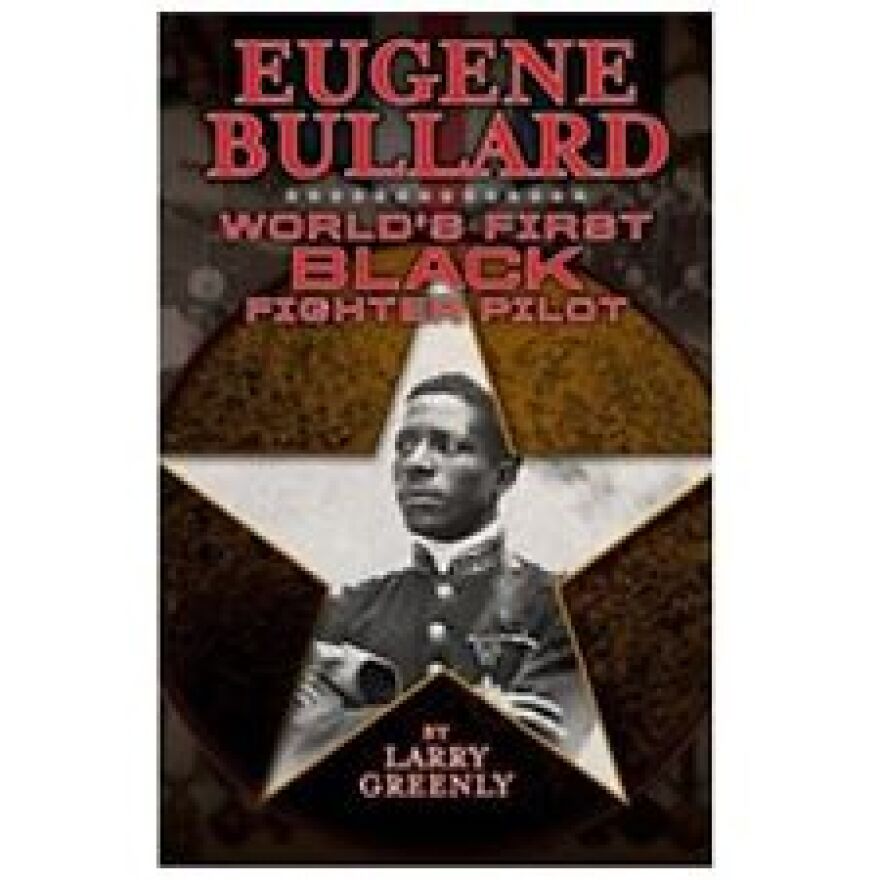“Eugene Bullard: World’s First Black Fighter Pilot”
Author: Larry Greenly
Publisher: NewSouth Books
Pages: 160
Price: $19.95 (Cloth)
The story of Eugene Bullard could not be any more fantastic if it were made up entirely and sold as a novel. Born in 1895 in Columbus, Georgia, to an ex-slave and a Creek Indian girl, Bullard was the seventh of ten children. He was by all accounts a friendly, good natured child but suffered from the racism of his time and place. His father, Octave, a 6’ 4” stevedore, would comfort Eugene by telling him stories of distant lands including France, where, Octave said, “blacks are treated as well as whites,” and “White folks are nice and polite to black folks.”
Shortly before his eleventh birthday, Eugene ran away to France, on foot. He had no sense of geography.
After a train trip to Atlanta, Eugene learned from gypsies how to care for horses and found work in stables and as a jockey in Dawson City, Georgia, then traveled to St Andrew’s Bay, Florida, and Montgomery, Alabama, then by train to Newport News, Virginia, where he finally stowed away on a ship to Aberdeen, Scotland. He worked selling fish and in an amusement park, and, moving on to Liverpool, England, took up body building and learned to box professionally. In December of 1913 Bullard achieved his dream. He boxed in France, and won. He then toured Europe with a troupe of black entertainers.
On his nineteenth birthday, October 9, 1914, Bullard, grateful to his adopted country, joined the French Foreign Legion. He fought in the trenches, miraculously surviving at battles such as Artois Ridge where 2,000 of 4,000 legionnaires were killed and, in his company, only 54 of 240 survived.
At Verdun, in February 1916, wounded, he received the Croix de Guerre for heroism.
Recovered from his wounds, Bullard was accepted in flying school, where cadets first learned on a WWI style “simulator,” nicknamed “The Penguin,” an airplane that did not fly. Before leaving the ground, they needed to master straight-line taxiing to get the feel of the controls.
He earned his wings, flew combat missions, sometimes twice a day, often accompanied by his pet rhesus monkey Jimmy, and had a confirmed kill.
Bullard was the first black fighter pilot in France, and probably anywhere in the world.
When the U.S. entered the war, American pilots flying for the French were all transferred to the American Expeditionary Force, all but one. The U.S. military would not have a black pilot.
A decorated hero, Bullard was thrust emotionally back to Georgia at the age of ten.
Bullard’s life in France after the war was as varied and sensational as ever. He boxed in Egypt, played drums in bands in Paris, bought the nightclub Le Grand Duc from Ada Louise Smith, known as “Bricktop,” and had as customers there the Prince of Wales, Charlie Chaplin, Edward G. Robinson, Fitzgerald and Hemingway. The black drummer in “The Sun Also Rises” is probably based on Bullard.
In 1923 he married Marcelle Eugenie Henriette, 22, daughter of a countess. Just before WWII Bullard worked in counter-espionage, then barely escaped to America by way of Lisbon, Portugal in July of 1940,as France was invaded by Germany.
Back in the USA he faced again the difficulties of prejudice. After visiting Columbus, Georgia, very briefly, he decided to live in New York City. In 1959 at age 64, on his birthday, he was honored at the French Consulate in New York City, given his fifteenth medal by the French government, and was made a Knight of the Legion of Honor.
Bullard, working as an elevator operator at Rockefeller Center, wore his medals on his uniform. The producers of the “Today Show” noticed this and one morning Bullard was interviewed by Dave Garroway.
“Eugene Bullard” is a young adult book, clearly written and researched from previous works on Bullard, especially “Eugene Bullard: Black Expatriate in Jazz Age Paris” (2000), and” The Black Swallow of Death: The Incredible Story of Eugene Jacques Bullard, the World’s First Black Combat Aviator” (1972). One is strongly tempted to read more about this extraordinary fellow.
This review was originally broadcast on Alabama Public Radio. Don Noble is host of the Alabama Public Television literary interview show “Bookmark” and the editor of “A State of Laughter: Comic Fiction from Alabama.”


